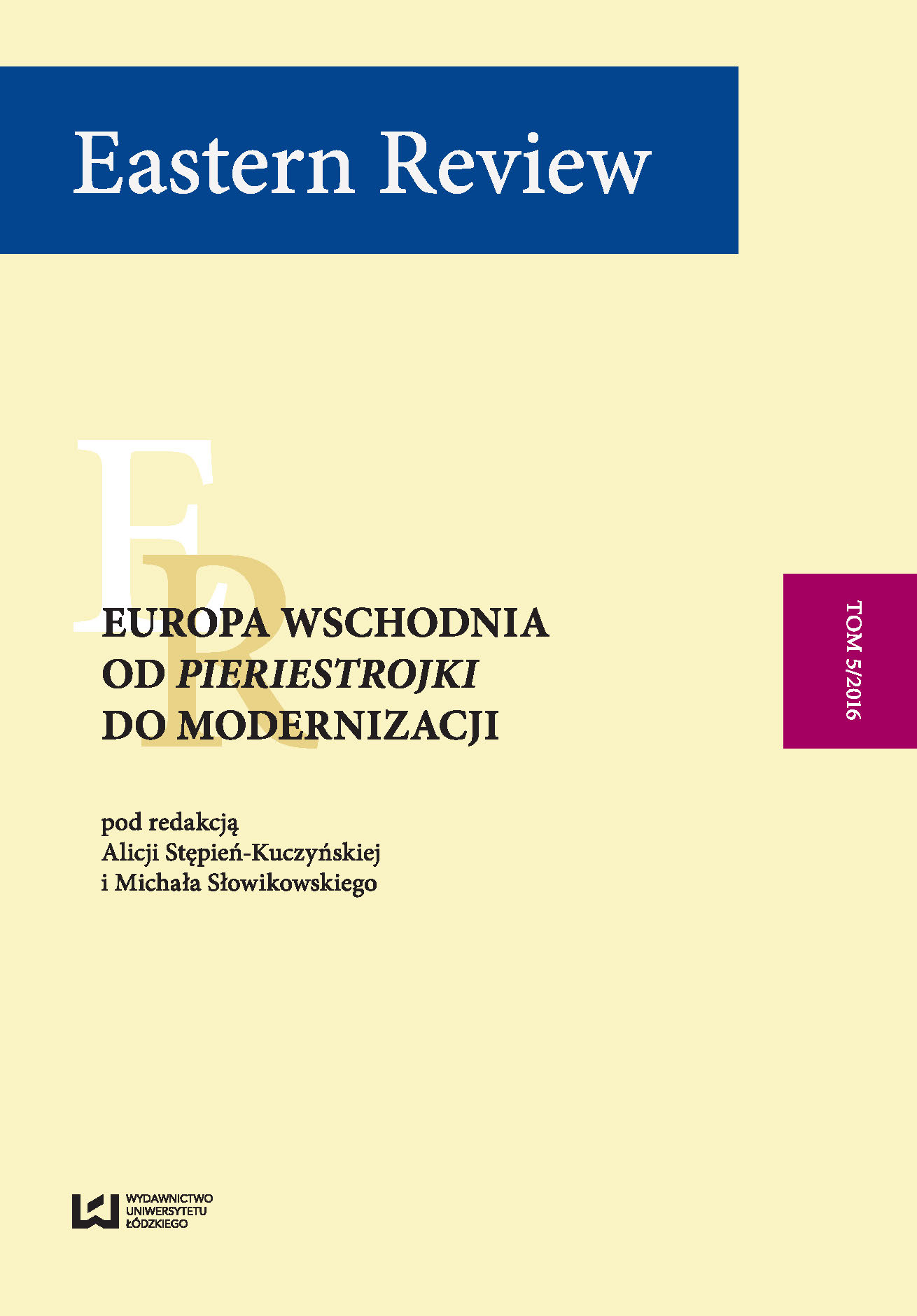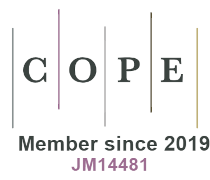Pieriestrojka znaczy smuta? O mentalno-społecznym kontekście sposobu pojmowania przez Rosjan gorbaczowowskich przemian
DOI:
https://doi.org/10.18778/1427-9657.05.06Słowa kluczowe:
Mikhail Gorbachev, perestroika, Smuta, RussiaAbstrakt
If in the West perestroika and its initiator, Mikhail Gorbachev evoke, almost involuntarily, mostly warm and positive connotations, Russians’ attitude and assessment towards them are, more and more explicitly and unequivocally, strongly negative. Interestingly and symptomatically, in the consciousness of the millions of Russians, the governance of both Gorbachev and Yeltsin – competing leaders who were programmatically in opposition – is regarded in the category of Smuta (the Time of Troubles), meaning, recurring in the Russian history, periods of defiance, feud, disarray, chaos, helplessness and decay. Analyzing and explaining the above, one should remember that the subjective power making history has for centuries been identified with the central national authority seeing in its existence, self-rule, might and efficiency not only the guarantee, but also the basis for existence and creation of the social order, or even the existence of the state itself in the, supposedly, invariably hostile world towards Russia. The presumptions of the similar – consolidated, disseminated, and reproduced for ages – way of experience, conceptualization, assessment and Russians’ problematization of the social reality do not have only a mental-cultural character, but their basis and correlates-counterparts also lie in the institutional-social sphere. Recurring throughout the Russian history periods of the weakening of power – together with the democratization attempts of (self-)limiting its authority – strengthen the processes of mental and social disintegration, create attitudes of life helplessness, destroy the sense of common value, identity and sense of existence. If so, Russian experience of the reformatory-democratic periods in their country’s history in general, and Gorbachev’s perestroika in particular, become something non-coincidental, even self-comprehensive, in the categories of, needing overcoming, the Russian Smuta. Not the first and – probably – not the last.
Bibliografia
Arutynyan A., The Putin Mystique. Inside Russia’s power cult, London 2014.
Google Scholar
Bóg Wschodu i Zachodu, red. M. Gwarny, I. Perkowska, Wrocław 2012.
Google Scholar
Broda M., Jurija Afanasjewa zmagania z Rosję, Łódź 2015.
Google Scholar
Broda M., „Ziemski Bóg”. O rosyjskim sposobie pojmowania władzy, [w:] Bóg Wschodu i Zachodu, red. M. Gwarny, I.M. Perkowska, Wrocław 2012.
Google Scholar
Broda M., „Zrozumieć Rosję”? O rosyjskiej zagadce-tajemnicy, Łódź 2011.
Google Scholar
Cirlot J. E., Słownik symboli, Kraków 2000.
Google Scholar
Faryno J., Ukryty, Niepozorny/Przenikliwy, [w:] Mentalność. Słownik, red. A. de Lazari, Katowice 1995.
Google Scholar
Heller M., Dokąd zmierza Rosja?, „Obóz” 1996, nr 30.
Google Scholar
DOI: https://doi.org/10.2307/2216242
Jack A., Inside Putin’s Russia, London 2004.
Google Scholar
Jelcyn B., Prezydencki maraton, Warszawa 2001.
Google Scholar
Kara-Murza A., Azjopa czy pop we fraku, „Forum” 1986, nr 50.
Google Scholar
Łotman J., Uspienski B., Kultura i eksplozja, Warszawa 1999.
Google Scholar
McFaul M., Russia’ Unfinished Revolution. Political Change from Gorbachev to Putin, Ithaca–London 2001.
Google Scholar
Mentalność. Słownik, red. A. de Lazari, Katowice 1995.
Google Scholar
Migranin A., Czym jest putinizm?, „Gazeta Wyborcza”, 07.10.2004.
Google Scholar
Sakwa R., Russian Politics and Society. Third Editions, London–New York 2002.
Google Scholar
DOI: https://doi.org/10.4324/9780203465660
Sołżenicyn A., Rosja w zapaści, Warszawa 1999.
Google Scholar
Truscott P., Putin’s Progress. A Biography of Russia’s enigmatic President, Vladimir Putin, London–Sydney–New York 2004.
Google Scholar
Wilk M., Wilczy notes, Gdańsk 1988.
Google Scholar
Aхиезер A., Давыдов A., Шуровский M., Яковенкo И., Социокультурныe основания и смысл большевизмa, Новосибирск 2002.
Google Scholar
Воровин В., Удар по России. Геопoлитика и предчувстие войны, Санкт-Петербург 2014.
Google Scholar
Воронцов В., В коридорах безвластия. Премьеры Ельцина, Москва 2005.
Google Scholar
Гайдар Е., Гибель империи. Уроки для современнoй России, Моcква 2006.
Google Scholar
Горбaчев M., Понять перестройку… Почемy это важно сейчас, Москва 2006.
Google Scholar
Исскуство в контексте цивилизационной идентичности, т. 1, рeд. Н. Хренов, Москва 2006.
Google Scholar
Кондаков И., Кризис цивилизационной идентичности в истории России, [в:] Исскуство в контексте цивилизационной идентичности, т. 1, рeд. Н. Хренов, Москва 2006.
Google Scholar
Медведев Р., Четыре года в Кремле, Москва 2004.
Google Scholar
Mиронова T., Русская душа и нерусскя власть, Москва 2013.
Google Scholar
Mясников A., O главной архетипической структyре русского общественногo самосознания, [в:] Oтечественная филосoфия: русская, российcкая, всемирная, рeд. Л. Шапошников, Нижний Новгород 1998.
Google Scholar
Oтечественная филосoфия: русская, российcкая, всемирная, рeд. Л. Шапошников, Нижний Новгород 1998.
Google Scholar
Рубби A., Ельциняда. Первое десятилетие пoстсоветской России, Мoсква 2004.
Google Scholar
Толстых В., Россия епохи перемен, Mосква 2012.
Google Scholar
Pobrania
Opublikowane
Jak cytować
Numer
Dział
Licencja

Utwór dostępny jest na licencji Creative Commons Uznanie autorstwa – Użycie niekomercyjne – Bez utworów zależnych 4.0 Międzynarodowe.










